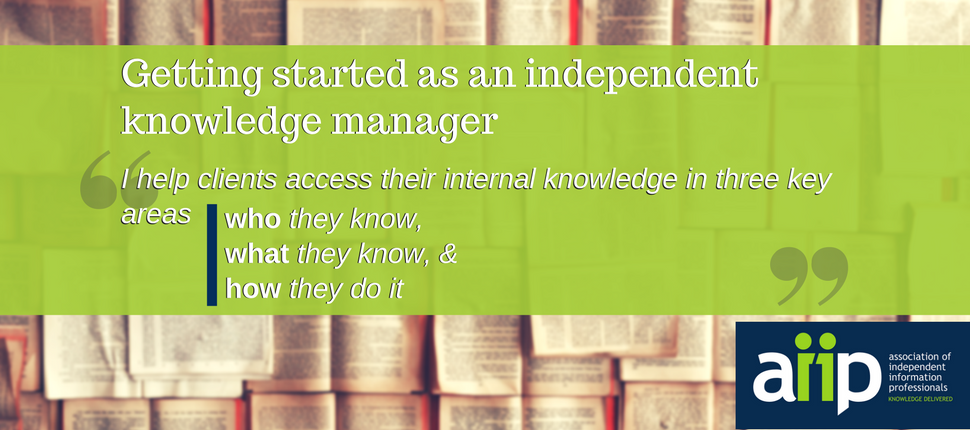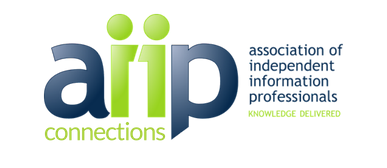How to build a business as an expert knowledge manager

As independent information professionals (IIPs), we help our clients make sense of the information and technology they have – or need – to grow their businesses.
It can be overwhelming to keep pace with the onslaught of available information and the rapid pace of technology changes. We manage information for clients so that they know what they have and where to find it.
We act as their guides while navigating technology choices and changes. We are information managers, knowledge management consultants, information architects, taxonomy specialists, project managers, library consultants, and more.
AIIP has over fifty experts in knowledge and information management.
We asked Connie Crosby, one of AIIP’s specialist knowledge managers how she got started as an independent knowledge manager.
As a former law firm librarian, I was used to working with commercial sources to locate and mine information. The natural progression was to start working with sources of information inside organizations, making key information accessible when it is needed. I help clients access their internal knowledge in three key areas: who they know, what they know, and how they do it.
I am used to working at the nexus of people, process and technology that is key to Knowledge Management. This is a quickly evolving field; participating in KM-related interest groups, speaking at conferences, and keeping up with readings in the field have helped me stay on top of developments in this area.
Organizations are often keen to jump directly to new software without considering what their requirements really are. It’s useful to have an objective third party like a KM or IM consultant assess what is needed through a knowledge audit or information audit, and make recommendations. Sometimes their existing technology can be “tweaked” to meet the need rather than throwing money away on implementing new.
Connie Crosby, Crosby Group Consulting – Knowledge Management Consultant
Consulting on knowledge management, information management, legal process improvement, records management, library management and social media.
For more tips download the AIIP free guide on Getting Started as an Independent Information Professional.





